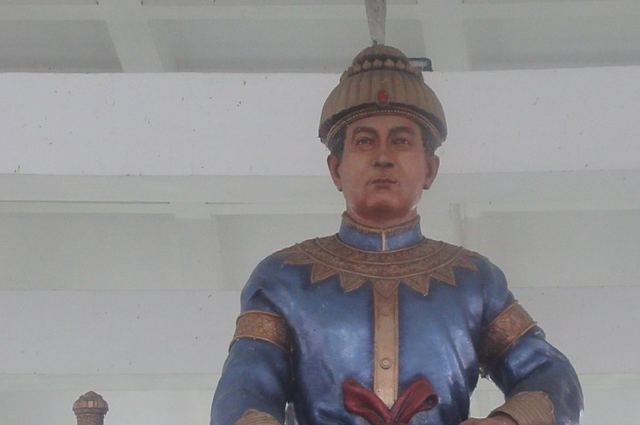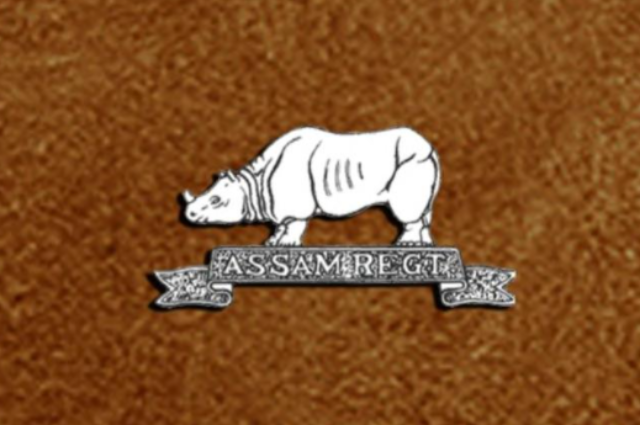
Growing up as an army man’s daughter has given me a lot of delightful memories. There was a life of challenges but there was the assurance of calmness too. Staying away from my father for most days of a year was a part and parcel of our being army kids. Nonetheless, we can’t deny the privileges and pleasures we had during our father’s army life.
My father was in Assam Regiment. A regiment was raised by Lt. Col. Ross Howman to counter the Japanese invasion threat on India in 1941. It primarily recruited the valorous Ahoms (descendants of ethnic Tai People) who were known for their doughtiness and once rules Assam as Ahom Dynasty (Founded by Ahom prince Sukaphaa who migrated from Myanmar and southwest China) for one of the longest periods in the history of any country.

Source: wikimedia.org
Ahom Dynasty ruled from 1228-1826! Today there are Nagas, Mizos, Kukis, Garos, Meiteis and other tribes. Later, the Adis, Nishis, Monpas, other tribes of Arunachal Pradesh, domiciled Gorkhas, and Sikkimese was also drafted into the regiment. It has 22 battalions. It has its base in Happy Valley, Shillong (Meghalaya) which is my birthplace too. One horn Rhino is the emblem and perhaps eponymous of war cry- Rhino Charging. Assam regiment is unique in many ways- brave soldiers are one aspect but there are two more aspects.

The simplicity, hospitality, and innocence are sure to steal your heart away. I specifically remember how they would treat my father and us (family) with great respect. They are ‘Pure Non-Vegetarians’ and when they knew our being ‘pure vegetarians, they would rush to wash their hand's a number of times and then serve us with vegetarian delicacies before anyone during a Mess-Party or Bada Khana (Big feast). And to top it all the crescendo was the famous ‘Badlu Ram ka Badan’ song by a man who would climb the chair and rest would chorus him from the floor. They would clap and whistle and didn’t need any instrument to play it. Here is a link to the beautiful song:
The story of Badluram and his badan (badan=body):
It is said that during World War II fought under British Raj, every soldier had their portion of ration (victuals) which was counted and given to the quartermaster. Badlu Ram was a soldier who died but his quartermaster didn’t report this and continued drawing ration on his name. This resulted in the surplus ration. When Indian soldiers were surrounded by Japanese for many days and there was no way they could get food, then they ate the ration drawn under Badluram’s name. So Assam regiment still shows its gratitude towards Badluram and his body due to whom they could live and fight the war. The song is sung during Kasam Parades, Mess Parties, and Bada-Khanas.
One more thing that separates or makes Assam regiment special is- their way of salutation. Unlike other regiments who would say Jai Hind when departing after a discussion with their colleagues, Assam Regiment says- TAGRA RAHO (stay Fit/ Healthy). The salutation/ greeting is so unique and attention-grabbing that when the platoon leaves any station, the people of that city still use the salutation. Maj Gen. S.C. Barbora was commanding officer during the 1960s. To ask and boost the morals of soldiers he would ask- Tagra Ho? (Are you fit?)The soldiers would rely on- Tagra Hai (We are fit) and later it changed to greeting others by saying – Tagra Raho (stay fit/ healthy).
Pronunciation of Tagra Raho - (त) ta. Say the “t” in tabla, start with your tongue between the teeth. In English, we use the little ridge behind the upper teeth. In Hindi, we use the teeth themselves. It is non-aspirated, so don’t produce a puff of air. Tagra raho –Ta-gra’. R’-ho
As they say, you can take out a soldier from the army but you cannot take out the army from a soldier, I think it holds true for army kids too. Especially with so many fond memories, I can vouch that it was one of the best phases of my life. Badluram and Tagra Raho are so much ingrained in me that it is just like a rhyme and greeting and I have exposed my children also to these unique ‘phenomena’!
Tagra Raho!
